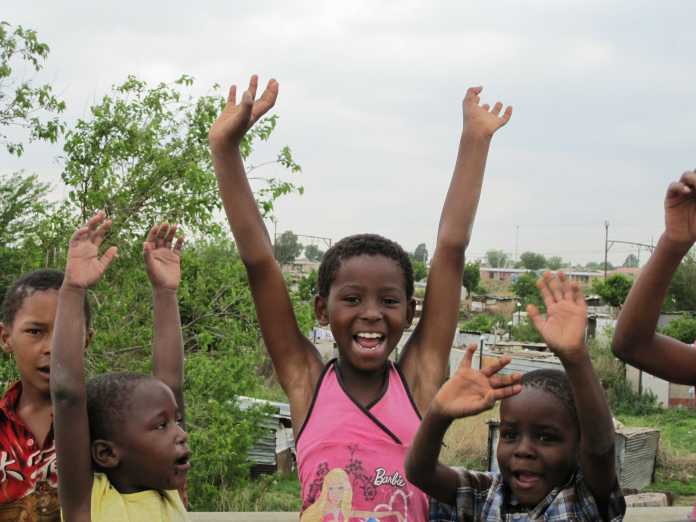The Associated Press (AP) posted a story describing a study by the World Meteorological Organization (WMO) which claims climate change is costing Africa as much as 5 percent of its GDP. Data show this is false. Extreme weather has not become more frequent or severe in Africa, and GDP in the different African regions and particular countries cited by the WMO and discussed in the AP story has grown substantially during recent period of climate change.
Monika Pronczuk, the writer of the AP story, “African nations are losing up to 5% of their GDP per year with climate change, a new report says,” uncritically parrots the WMO’s claims that “African nations are losing up to 5% of their GDP every year as they bear a heavier burden than the rest of the world from climate change.”
“‘Over the past 60 years, Africa has observed a warming trend that has become more rapid than the global average,’ said WMO Secretary-General Celeste Saulo, warning that it is affecting everything from food security to public health to peace,” wrote Pronczuck.
She should have checked the data.
As Climate Realism has discussed repeatedly, hard data from the United Nations and other government and international agencies refute any claims that climate change is making Africa’s weather worse or causing food insecurity. The latter claim has been debunked in repeated Climate Realism articles, here, here, and here, for example, which show that crop yields and production across the continent, except in areas of civil and cross border strife driven by religious and political conflicts, have regularly set records amid modest climate change.
Climate Realism has also shown that recent extreme weather events have not, in fact, been unusual in Africa’s history nor have they been more severe in recent decades, here, here, and here, for instance. In the few countries where food production has been hampered and economic growth has declined across multiple years in Africa, research shows it is consistently due to political strife, from civil wars, cross border conflicts, or political corruption. Climate change has not been a factor.
The main thrust of the WMO report is that because climate change has caused increasingly severe weather, it has also resulted in a GDP decline with African countries having to spend a disproportionate percentage of their incomes mitigating climate change. But since the former is false, the latter is as well. And, indeed, data consistently show substantial GDP growth across the period of recent climate change in the regions and countries discussed in the AP story, and one would presume the WMO report. In fact, the growth rate there has been at or above the world’s average GDP growth rate as a whole. For instance:
- Data from the African Development Bank (ADB) shows GDP growth in the region of West Africa at or above 3 percent since 2000, topping 4 percent two of the four years. The further projects growth in each of the countries for the remainder of 2024 and through 2025, stating; “[g]reater agricultural output, expansion in the services sectors, and reforms to strengthen private sector participation in energy and mining are expected to drive growth in Benin (6.4 percent), Gambia (6.2 percent), Togo (6 percent), Mali (4.8 percent), Sierra Leone (4.6 percent), and Burkina Faso (4.1 percent).”
- Data from the World Bank show that, excluding the high income countries in Sub-Saharan Africa, since 2000, GDP growth in the poorest countries has topped 6 percent five different years, five percent once, 4 percent five times, and only experienced negative growth in a single year, in 2020, the year of the pandemic. The poor countries in Sub-Saharan Africa experienced GDP growth rates of 4.3 percent, 3.7 percent, and 3 percent respectively in 2021, 2022, and 2023.
The AP mentioned Mali and Zambia in particular as countries suffering economic hardship due to climate change, but the data tells a different story. Over the past decade, Mali has seen its GDP grow every year but 2020, with growth topping 5 percent five of the past 10 years (spiking to 7.1 percent in 2014), and topping three percent every other year.
Zambia’s GDP history tells a similar story. Zambia’s growth in 2023 was 5.8 percent, the highest single year during the past decade, and except for the pandemic year of 2020, Zambia’s annual GDP increased, topping 3 percent growth in all but two growth years.
The WMO is a specialized agency of the United Nations whose mandate covers weather, climate, and water resources. It is staffed with meteorologists and other scientists who specialize in weather, not economists, and as such it is not known for its incisive economic acumen or analysis. No one goes to the WMO to analyze economic trends or for its forecasts of economic growth. Based on its uninformed, deeply flawed analysis climate change’s purported threat to Africa’s GDP, it might be a good idea for the WMO to stay in its lane and leave economic forecasting to economists.
Also, it might behoove the AP to do some simple fact checking (it takes just a few minutes through the magic of the internet), looking at existing hard data on trends before promoting economic analyses from organizations without apparent economic expertise. In fact, even when economists pronounce something, its would still be a good idea for the AP to check the data before uncritically parroting a claim as if it were the gospel truth.
















